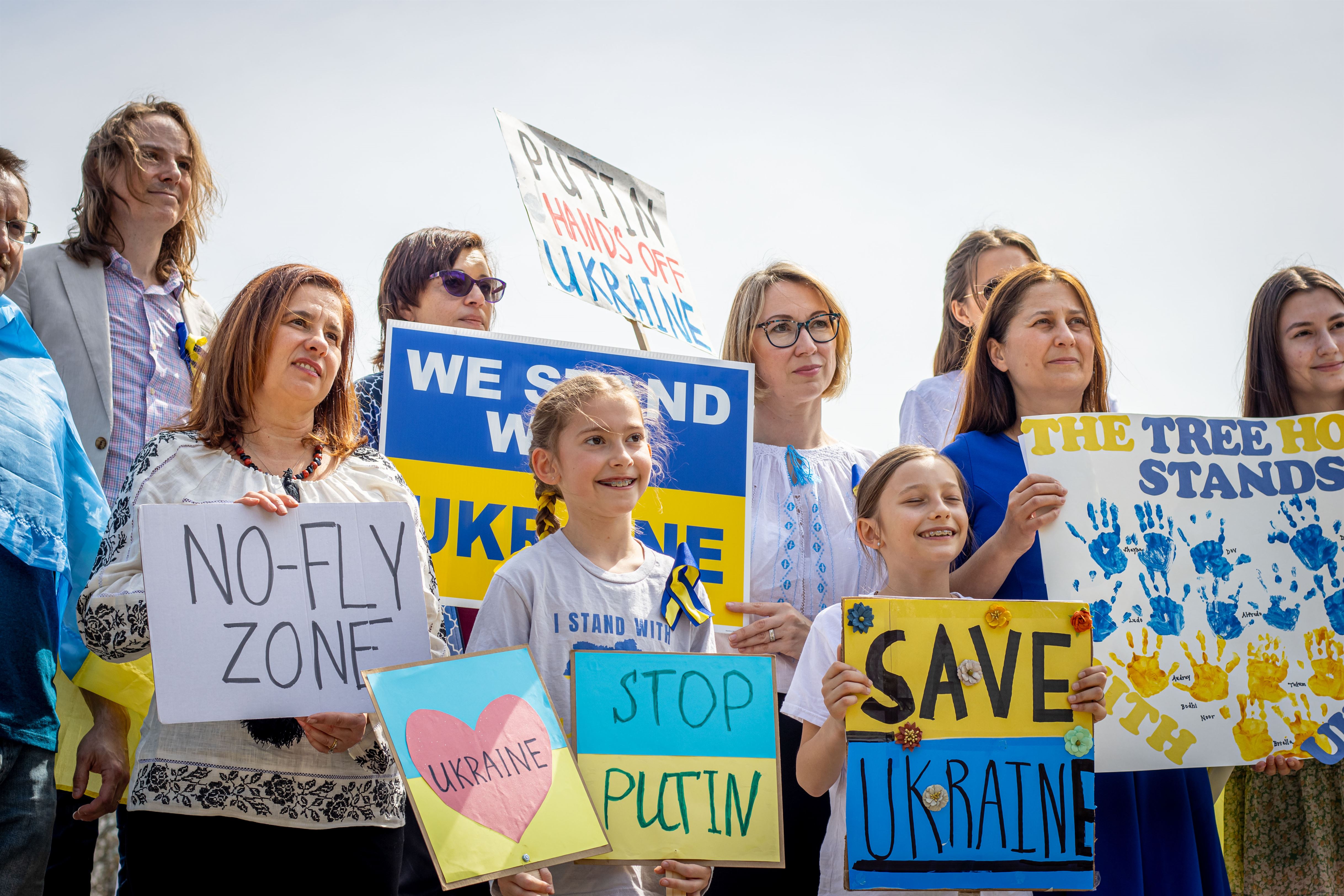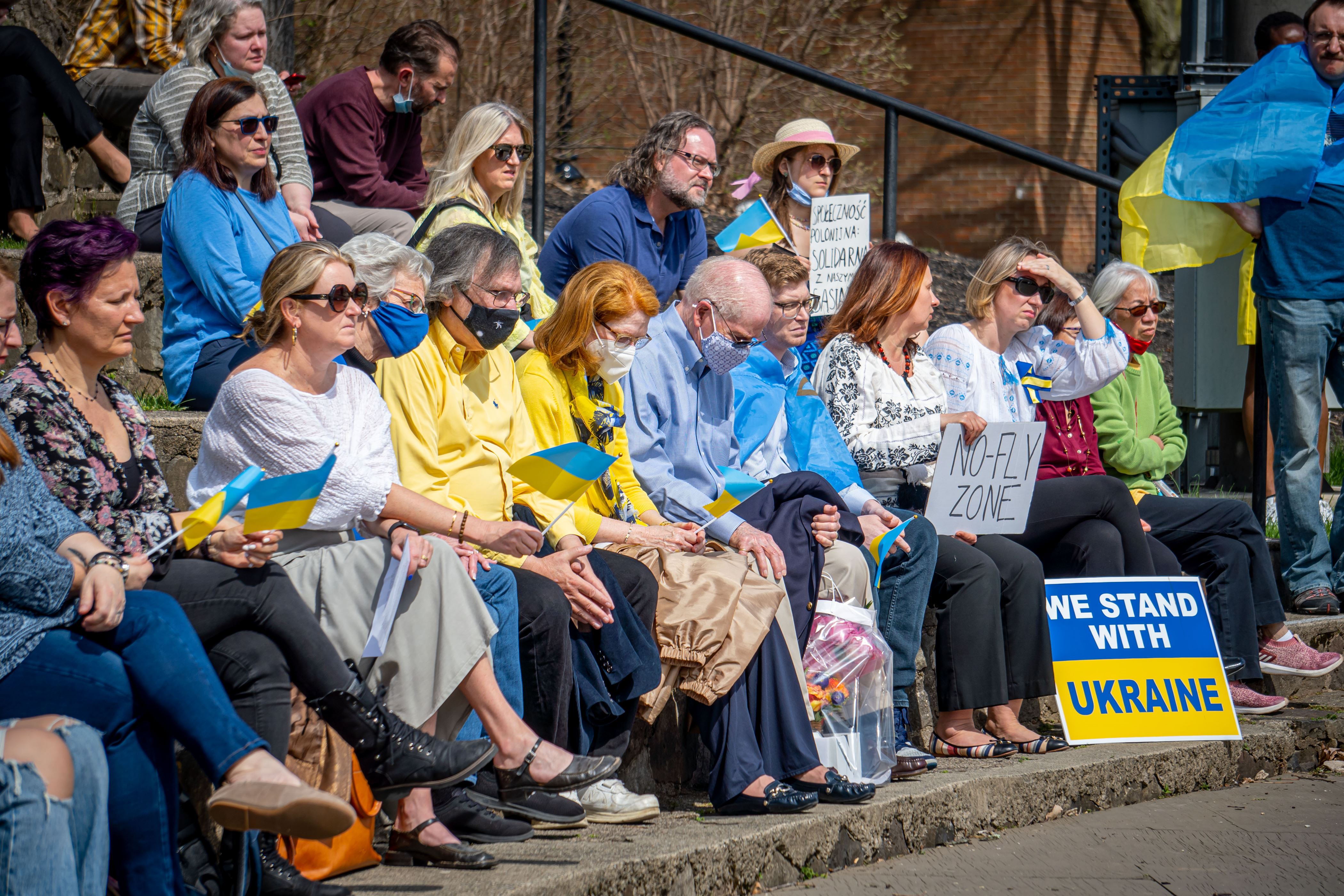Members of the Ukrainian community at Montclair State University came together on April 13 at the Amphitheater to protest Russia’s unprovoked war on Ukraine.
As of this week, the administration at Montclair State has not given any statements regarding the war in Ukraine, leaving members of the community on campus feeling neglected and ignored. The Montclarion contacted university spokesperson Andrew Mees for a statement, who responded that there is no statement on this matter.
Halyna Hotsko, the associate director of capital procurement at Montclair State, held a sign with “NO-FLY ZONE” written on it while giving her speech in front of the crowd. Hotsko condemned any school that chooses to ignore the conflict in Eastern Europe.
“Silence supports Ukrainian genocide,” Hotsko said. “Each silent college supports Ukrainian genocide. Montclair State should not stand by and watch Russian war crime.”
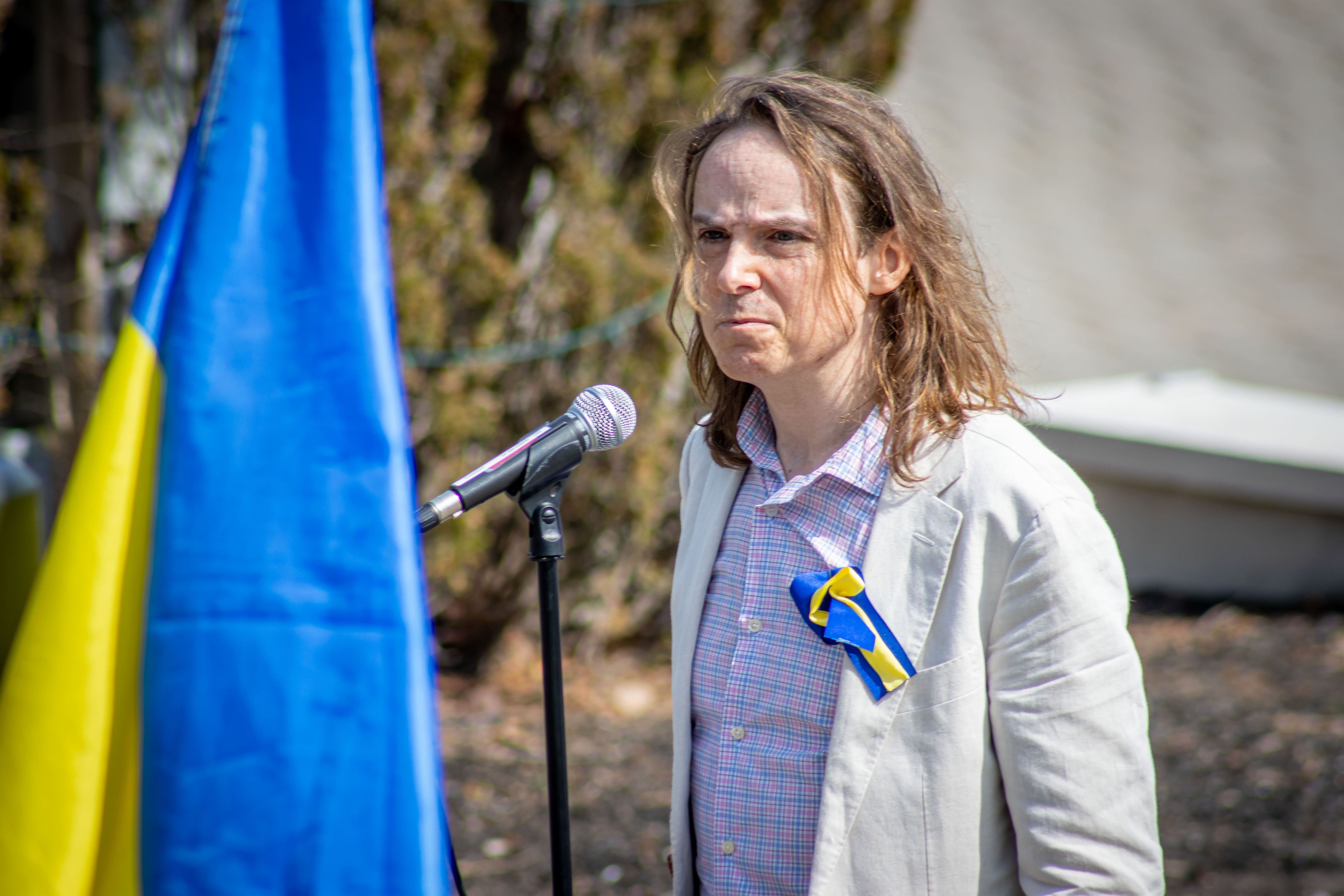
Jefferson Gatrall, coordinator of the Russian program at Montclair State and organizer of the event, says the Russian language does not belong to Vladimir Putin or the Russian Federation.
John LaRosa | The Montclarion
Jefferson Gatrall, the coordinator of the Russian program at Montclair State, said he organized this event after seeing Ukrainian colleagues and students on campus suffering because of the war. Olena Nesteruk, an associate professor of family science and human development, helped organize it along with Gatrall.
“It is really important for the Russian program to support them,” Gatrall said. “I really think the university needs to make a public statement in support of Ukrainian people, our colleagues and students on campus.”
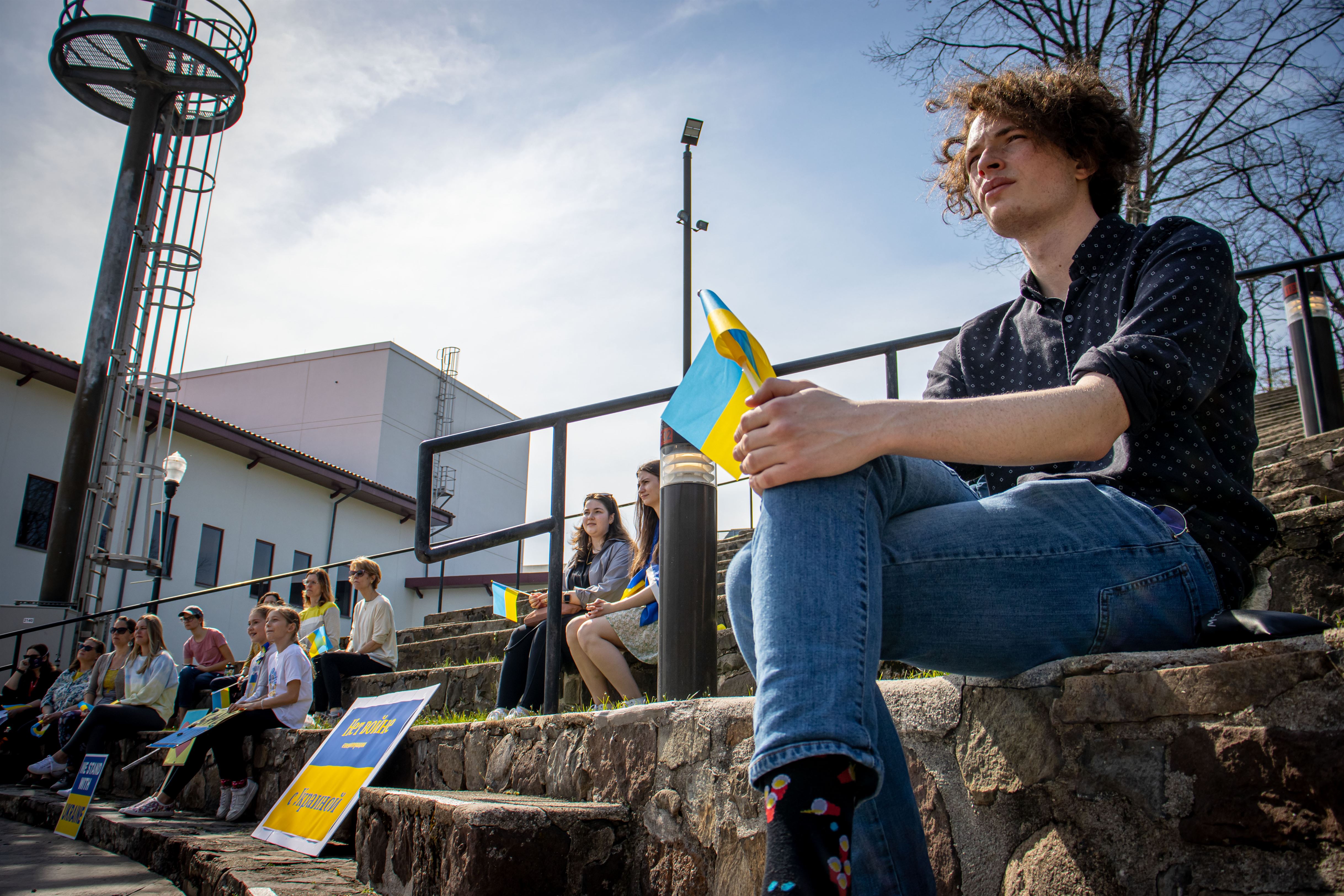
Jake Goetz, a junior film and television major, holds a Ukrainian flag in support of Ukraine.
John LaRosa | The Montclarion
Gatrall went on to say how Montclair State should also publicly condemn the Russian Federation for the unprovoked invasion of Ukraine.
“I was worried the war would be over before I could even reach the administration,” Gatrall said. “Fortunately, I was wrong. The Ukrainian people have held out longer and stronger than they were expected to.”
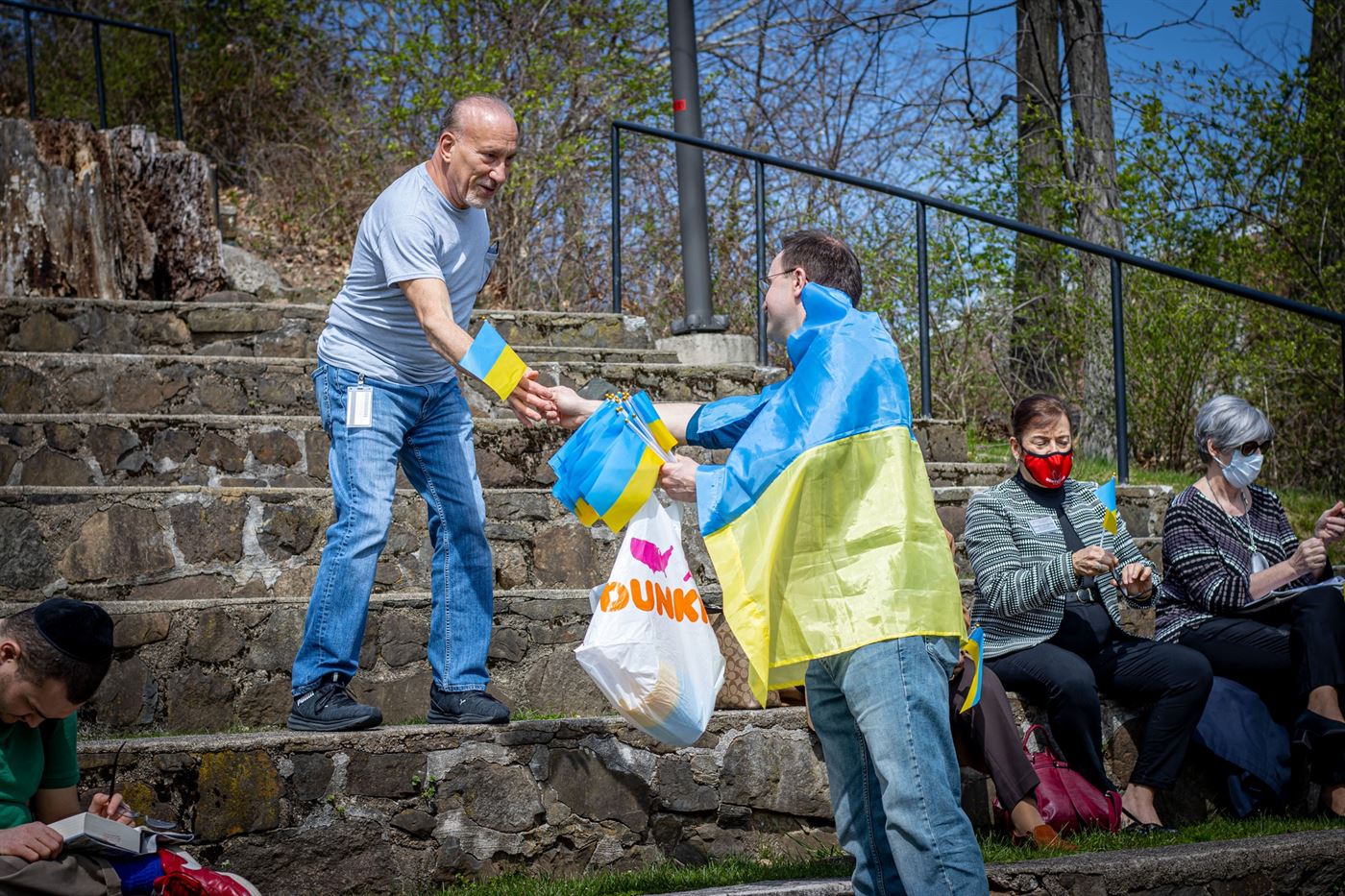
Viktor Turchyn (left) hands a Ukrainian flag to his friend Len Belli (left).
John LaRosa | The Montclarion
Viktor Turchyn, the manager of computing lab services and technical support services, handed out Ukrainian flags to all who attended. Many of the speakers of Ukrainian heritage who attended wore the country’s flag as a cape during the rally.
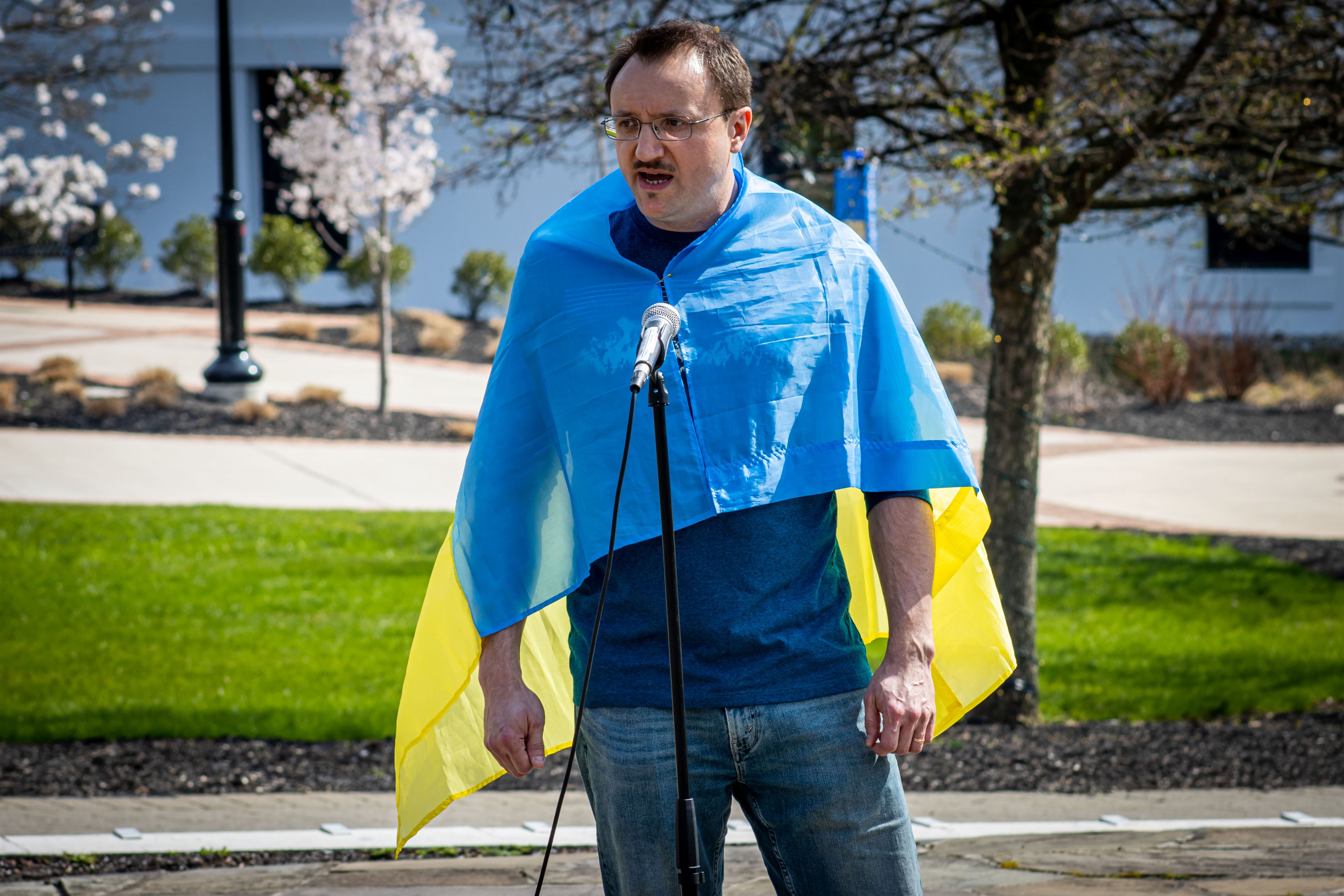
Viktor Turchyn, the manager of computing lab services and technical support services, wears a Ukrainian flag while he speaks about the innocent lives lost in the war.
John LaRosa | The Montclarion
Two little girls, Camellia Yakubov and Laura Chiparus, ran around the stairs of the Amphitheater before the rally began, dressed in the Ukrainian colors of blue and yellow, holding signs in support of the country. One read “SAVE UKRAINE,” while the other had “Ukraine” at the center of a pink heart.
After every speaker finished, they chanted “Нет войне,” meaning “no to war,” and “слава україни,” meaning “glory to Ukraine” as the crowd chanted back.
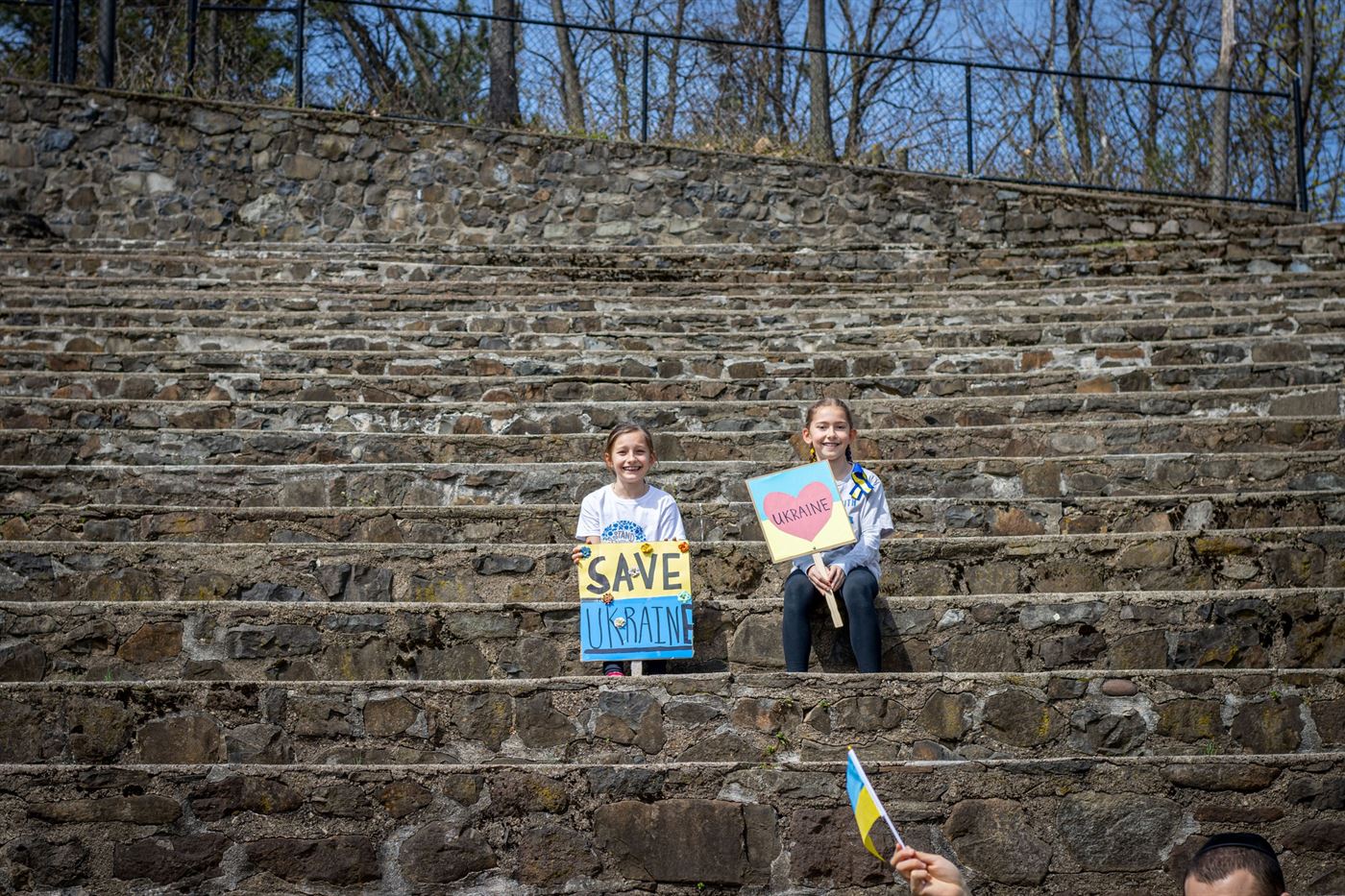
Camellia Yakubov (left) and Laura Chiparus (right) hold signs in support of Ukraine.
John LaRosa | The Montclarion
Gatrall informed the crowd that the phrase “Нет войне” is currently banned in the Russian Federation. It’s been banned in protests, in the press, in schools and the workplace. According to Gatrall, any Russian caught using or writing the phrase can face arrests, fines and termination from their workplace.
Ali Boak, the director of the Global Center on Human Trafficking at Montclair State, spoke about how human trafficking is fueled by war and that many people take advantage of those who are displaced by it.
“The fog of war is the perfect cover to increase their business,” Boak said. “You have extremely vulnerable individuals who are forced to put their trust in strangers.”
Boak said many refugees fleeing Ukraine have no idea where to go next. Many give into people posing as volunteers in desperation for some form of help or shelter.
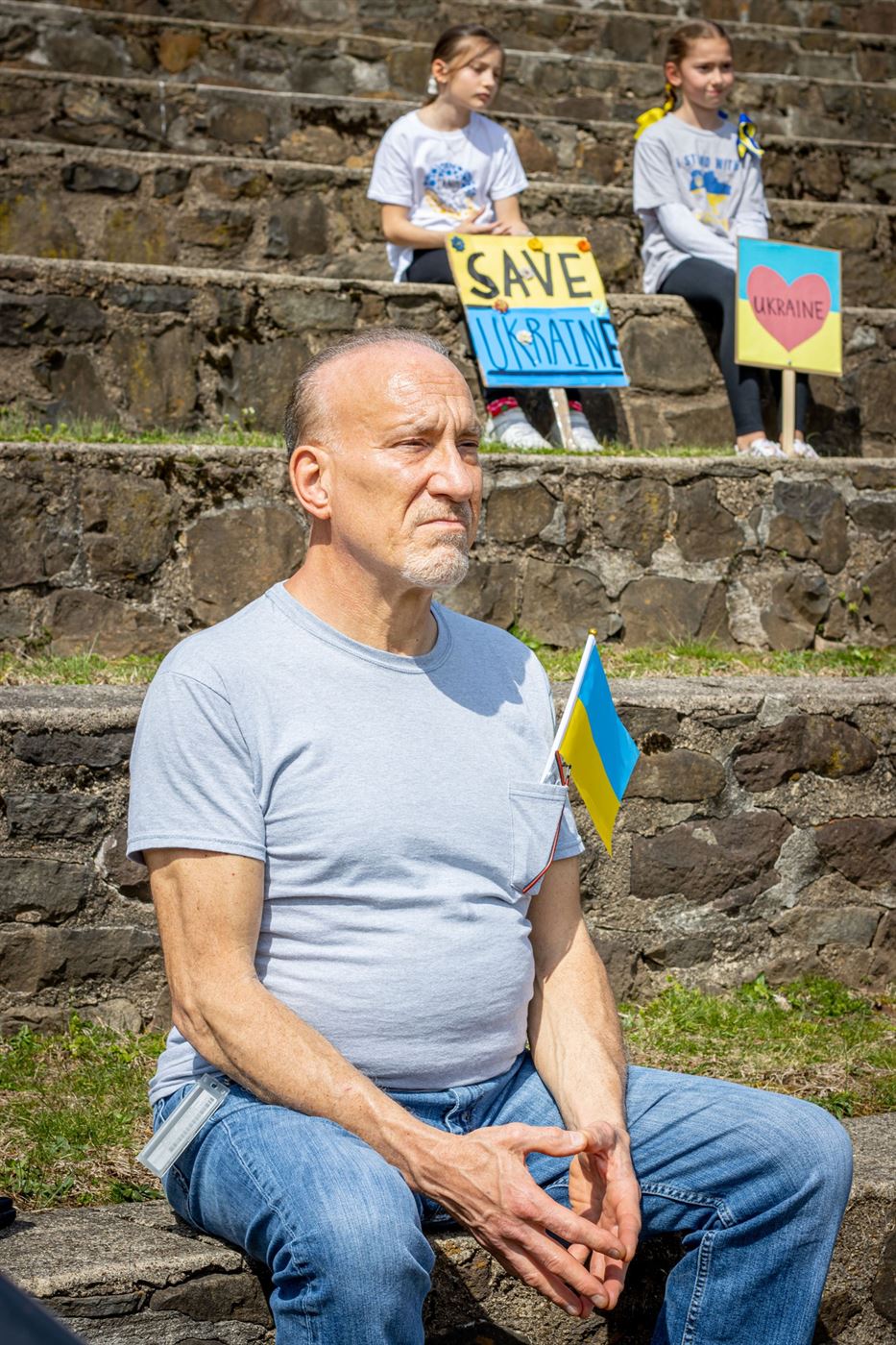
Len Belli (left), Camellia Yakubov (middle) and Laura Chiparus (right) support Ukraine at the rally.
John LaRosa | The Montclarion
Len Belli, an audio-visual engineering specialist at the university, said he wished the administration would do more in support of Ukraine.
“I’m happy to see the people that showed up and to hear some of the sad stories,” Belli said. “It’s a very scary time. We know a lot of it from the news, but we don’t know it from the firsthand [experience of] people that have relatives.”
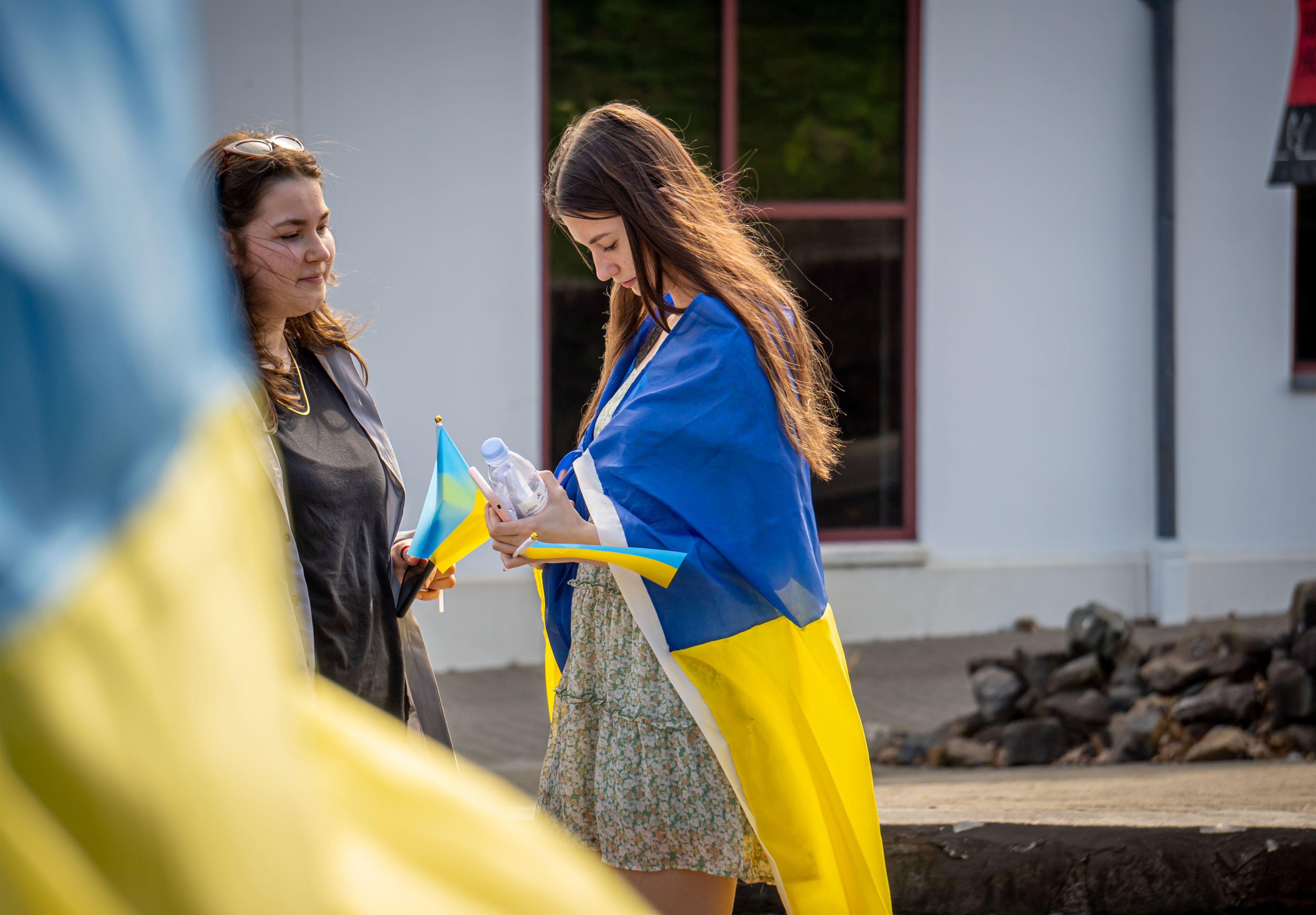
Liz Chernyshova, a freshman psychology major and Russian minor, prays for Ukraine while wearing the country’s flag.
Lynise Olivacce | The Montclarion
Liz Chernyshova, a freshman psychology major and Russian minor, said she has a lot of personal ties to Ukraine as both her parents immigrated from the country. Her uncle, her aunt, her grandmother and many of her cousins are still living in Ukraine right now, and she said she worries about them every day.
“What did Ukrainians do to deserve this?” Chernyshova said. “My cousins are three and five years old. They haven’t even attended first grade yet. They’re supposed to play and have fun, not worry about war and death.”
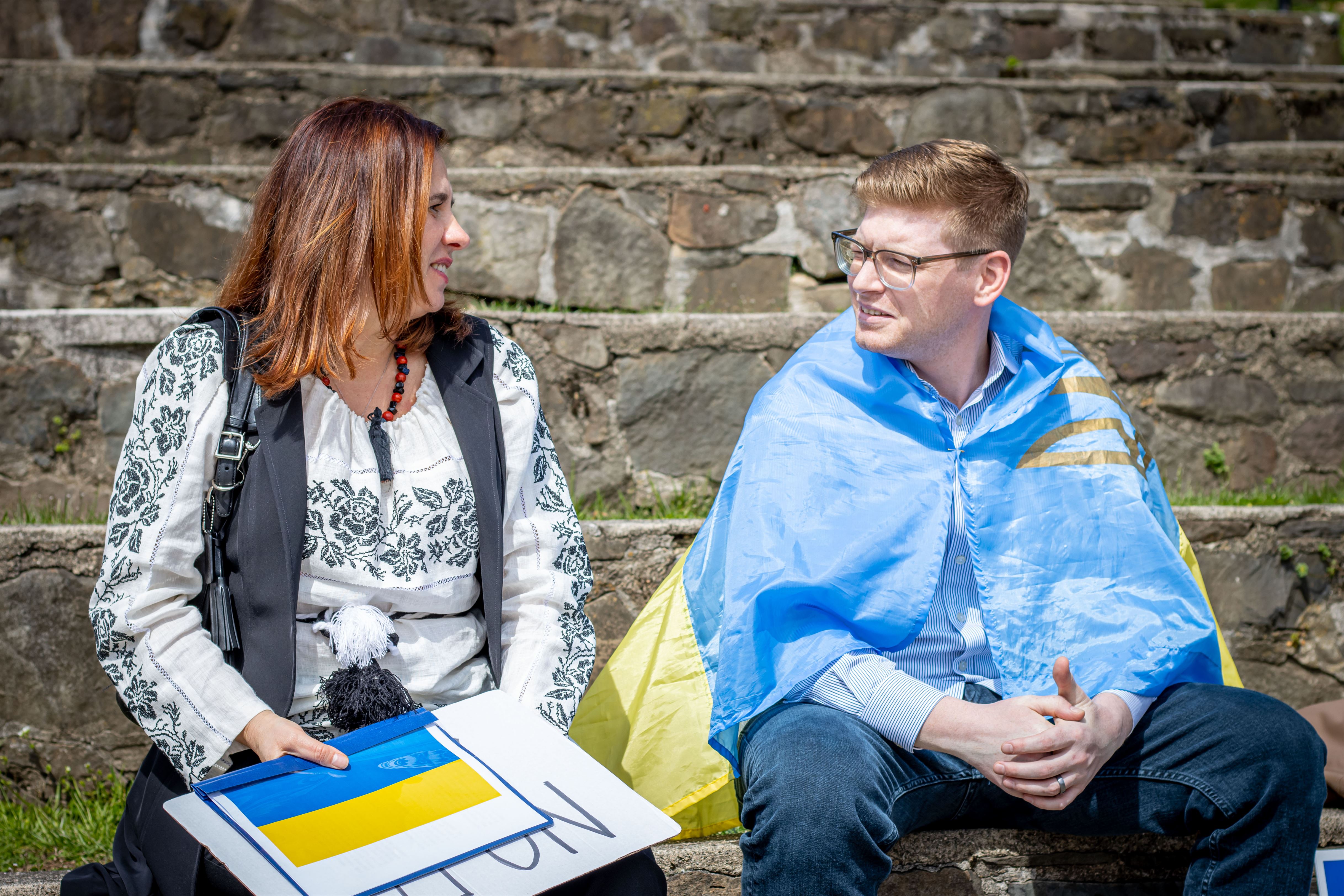
Halyna Hotsko (left), the associate director of capital procurement at Montclair State, and Kyle Carter (right), the assistant procurement administrator, chat before the rally.
John LaRosa | The Montclarion
Kyle Carter, the assistant procurement administrator at the university, said he came out to support his friend.
“It’s an atrocity really,” Carter said. “One of my co-workers is from Ukraine. I came out to support her and everything she’s been involved with, sending supplies and funds.”
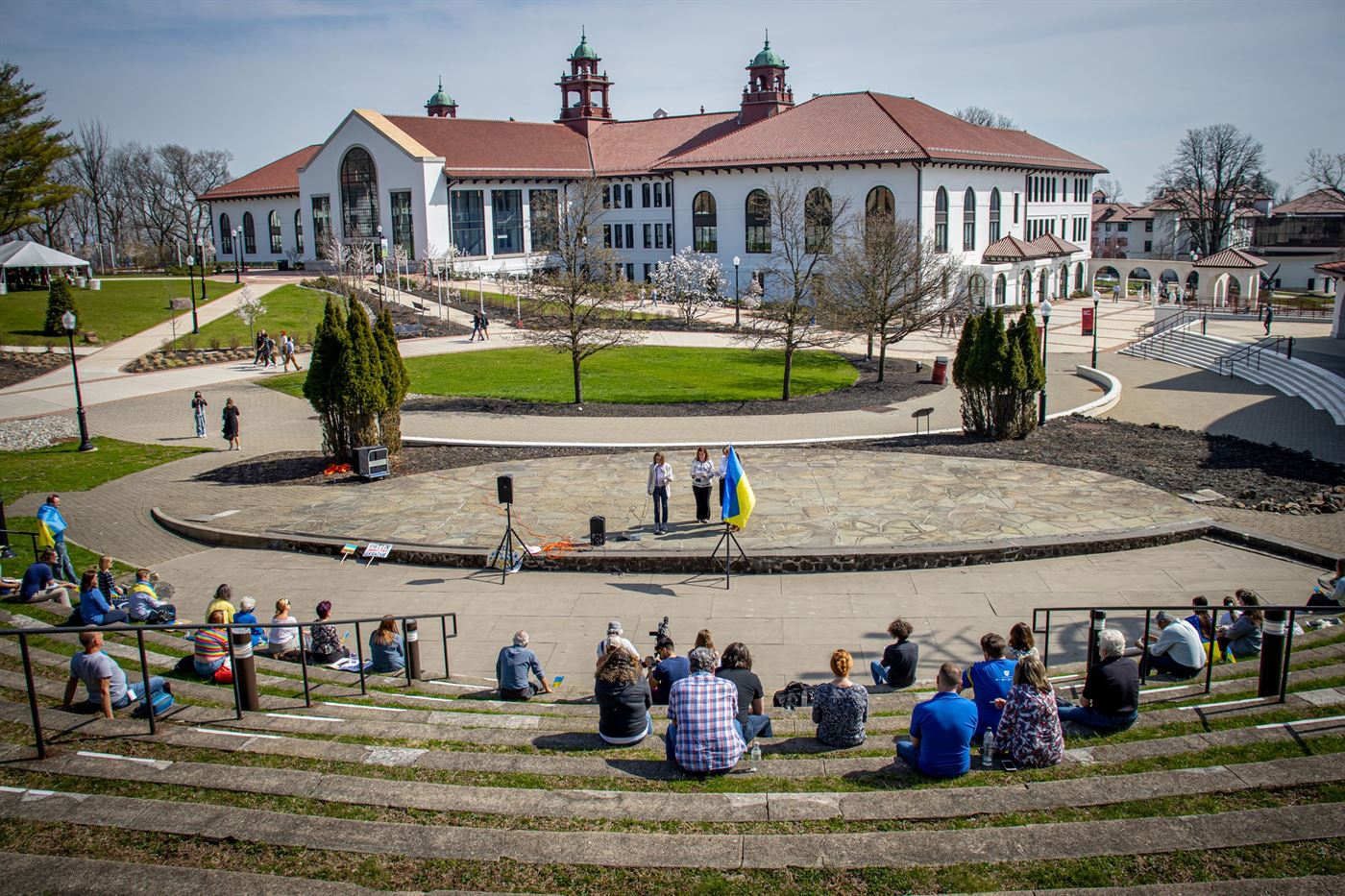
The rally was held at the outdoor amphitheater on campus with a Ukrainian flag onstage.
John LaRosa | The Montclarion
Toward the end, Gatrall, Nesteruk, Hotsko and Milla Yakubov, director of the Ben Samuels Children’s Center, spent nearly six minutes listing Ukrainian cities that were either occupied or attacked by Russian forces.
“Today, Ukraine is bleeding — it’s happening today,” Yakubov said. “Who can guarantee these atrocities will not continue somewhere else tomorrow?”

